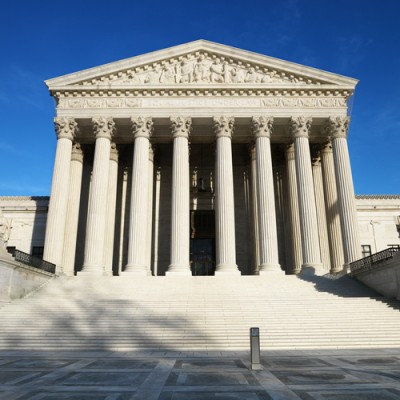SCOTUS limits president's power in making temporary appointments

The U.S. Supreme Court ruled Tuesday that a person appointed by the president in an acting capacity in a position requiring the advice and consent of the Senate is prohibited from continuing in that role if subsequently nominated for the permanent position.
Chief Justice John Roberts wrote the 6-2 majority opinion (PDF) in NLRB v. SW General Inc., with a concurring opinion by Justice Clarence Thomas and a dissent by Justice Sonia Sotomayor that was joined by Justice Ruth Bader Ginsburg.
The case concerned an acting National Labor Relations Board general counsel, Lafe Solomon, who was appointed to the acting position while waiting for U.S. Senate confirmation for the full appointment. SW General, an ambulance company fighting a complaint filed by the NLRB, argued that the arrangement enabled the president to advance his agenda without first getting the advice and consent of the Senate.
The Supreme Court disagreed with a decision by the Richmond, Va.-based 4th U.S. Circuit Court of Appeals that sided with the ambulance company, saying the appointment violated the 1998 Federal Vacancies Reform Act’s prohibition against a nominee for the permanent position serving in an acting role if he or she hasn’t previously served as “first assistant” to that position for at least 90 days prior to the temporary appointment.
Justice Roberts wrote that the statute bars any person from continuing acting service in a position requiring the Senate’s advice and consent after being nominated to fill the position permanently.
“The president could have appointed another person to serve as the acting officer in Solomon’s place,” Roberts wrote. “And he had a wide array of individuals to choose from: any one of the approximately 250 senior NLRB employees of the hundreds of individuals in [Presidential Appointments with Senate Confirmation] positions throughout the government.”
Justice Thomas, in his concurrence, wrote that the majority’s interpretation of the act is correct, but he wanted to counter the dissent’s conclusion that it does authorize the appointment in this case. Thomas argues that the Appointments Clause likely prohibited the appointment, which would be concerned with whether the NLRB general counsel is an “Officer of the United States” as pertains to that clause, and if so, whether that is a “principal office” who can be appointed only with the Senate’s advice and consent. He believes both apply to the position.
Justice Thomas wrote that “Courts inevitably will be called upon to determine whether the Constitution permits the appointment of principal officers pursuant to the FVRA without Senate confirmation. But here, the proper interpretation of the FVRA bars the appointment.”
Justice Sotomayor, in dissent, writes that according to the text and history of the statute, the prohibition applies only to non-Senate-confirmed first assistants who did not serve in that position for at least 90 of the 365 days before the vacancy.



